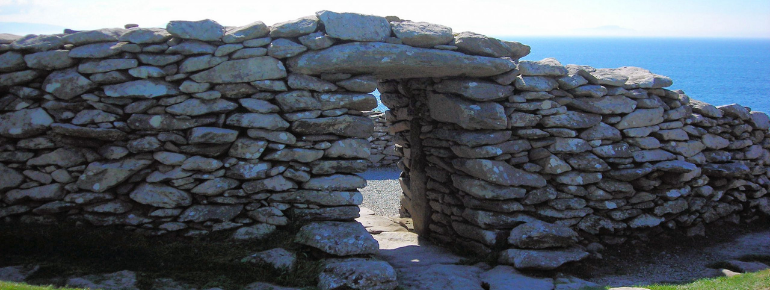Heritage matters and EO can do wonders to safeguard it

The first Copernicus Hackathon Cork on the topic of Natural and Cultural Heritage, organised by Eurisy together with the Cork Institute of Technology and the National Space Centre in Cork took place from 9 to 13 June 2020. The event was planned to take place in Cork, Ireland. However, due to the travel restrictions implemented to contain the COVID-19 pandemic, we initially decided to postpone the Hackathon and eventually reformed it to a fully virtual event. Despite the difficulties, the organisers, mentors, speakers and participants showed great determination and made the most out of this extraordinary situation.
In the weeks before the official Kick-off of the Hackathon, excitement was mounting as registrants started to join the online dedicated workspace. From the start, the event promised to be very diverse and multidisciplinary. Participants with different backgrounds ranging from students, entrepreneurs, start-ups, coders, researchers, scientists, and Earth observation specialists shared their passion about space and the development of innovative applications.
Although the audience was not able to brainstorm and exchange their ideas face to face, and no Irish beers were shared at the end of the competition, the online event allowed for the digital participation of professionals that might not have been able to travel to Cork. Moreover, the virtual Hackathon attracted a very international audience, giving participants from across Europe the opportunity to be involved in the preservation of Irish heritage.
Four challenges were presented to the participants, who were asked to come up with innovative ideas based on the use of Copernicus and Galileo data to safeguard Irish cultural and natural heritage, to monitor the effects of costal changes on cultural heritage, and to respond to the threats of COVID-19 (a challenge that the European Commission fostered for all Copernicus Hackathons implemented during these difficult times).

The team with the best idea presented a solution for Heritage Surveillance and Monitoring using advanced remote sensing techniques to detect ground deformation and to monitor subsidence at archaeological sites, monuments and historic urban centres, and relying on algorithms to detect different types of surface changes caused by erosion, floods, vegetation or human actions. Their presentation, together with the presentations of all teams that were awarded a prize is available here.
The Office of Public Works (OPW) of the Republic of Ireland, consulted by Eurisy prior to the Hackathon, proposed the challenge on monitoring the effects of costal changes on cultural heritage. The OPW also offered part of the prize awarded to the team with the best idea on this topic. The OPW showed its commitment and interest in finding a suitable solution for this critical issue by taking the time, before and during the hackathon, to mentor participants on how climate change threatens cultural sites and popular tourist destinations along the Irish coastline, with negative impacts on the economy of local communities.
To give an example, in 2019 the heavy storms hitting the West coast of Ireland caused the Dunbeg Fort in Dingle, a promontory fort built in the Iron Age, to partially collapse. The team with the best idea on this topic presented a solution called MAYA (Monitoring Coastal Erosion Anywhere), relying on Sentinel-2 data to study the effects of coastal erosion on sites situated around the Irish coast, using Dunbeg Fort as a case study.
In the end, a total of nine teams pitched their projects online to the jury and the other participants. Apart from the team tackling the COVID-19 challenge, all other teams decided to address the challenges related to monitoring the effects of coastal changes and to safeguarding Irish cultural heritage. This underlines the potential for Copernicus to effectively contribute to preserve Cultural Heritage in Europe and around the world. It also indicates that cultural heritage matters to the young European professionals working with Earth Observation data.
Indeed, the effects of climate change and human activities on cultural heritage have been widely acknowledged. Yet, heritage managers have little cost-effective tools to efficiently monitor the threats to cultural heritage and to hence target their adaptation measures. The Hackathon has set an important wave of ideas and projects in motion that could meet these pressing needs.
To find out more about the hackathon, please visit the event website. The recording of the Pitching and Awarding Day is also accessible here.
